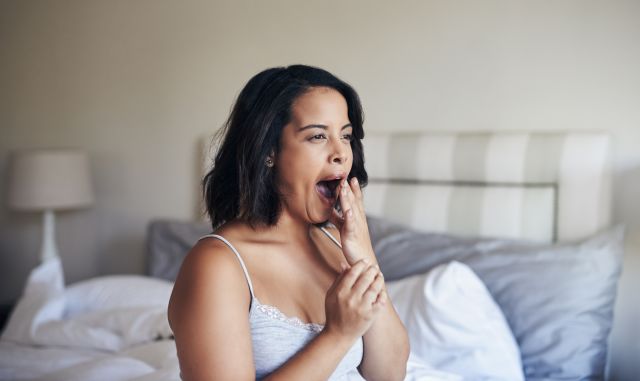Why is morning breath so bad? What causes it? And why the morning? And how come nobody ever has “afternoon breath”? Let’s answer those questions here today.
To start, “morning breath” is really just plain old bad breath, called halitosis. Halitosis is a common problem that has a variety of causes, from diet to lifestyle to oral health issues to chronic medical conditions in certain people. While not everyone has an issue with chronic halitosis, almost all of us have some type of morning breath. That’s what makes it so interesting.
I can hear you now: “OK, Dr. Connelly, morning breath is just plain old halitosis. But why the morning?”
To answer that question, we have to first go to one of the common causes of halitosis—dry mouth. When your mouth is dry, bacteria have a field day. Your saliva washes away and controls bacteria, so when it’s not there, bacteria thrive. And what do those bacteria do when left to themselves? Well, imagine schoolchildren without the teacher or principal—they’ll cause all kinds of mischief. They munch on compounds, proteins, amino acids and leftover foodstuffs in your mouth and teeth, and produce volatile sulfur compounds (VSCs) which, well, stink.
To get a bit more specific for you chemistry people, the VSCs responsible are believed to be hydrogen sulfide, methyl mercaptan and dimethyl sulfide. These VSCs are generally produced through the bacterial metabolism of sulfur amino acids like cysteine and methionine.
OK, chemistry class is over—the bottom line is, bacteria crunch and munch away in a dry mouth, and the result is bad breath. So that brings us back to what causes morning breath. Since saliva production is markedly reduced while we sleep, those previously mentioned bacteria thrive and do their thing, resulting in morning breath.
Yes, it really is that simple—morning breath generally comes from dry mouth, which causes bad breath.
Now to the question I often get asked: How can I prevent morning breath? Well, there’s really no outright, foolproof prevention. Your body doesn’t produce saliva when you sleep, and you need to sleep, so the breeding ground will always be there. That said, there are a few things you can do to get rid of morning breath.
- Brush and floss right before you go to sleep. This will clean out your mouth and get rid of any food particles. This gives those pesky bacteria less “food” to munch on.
- Hydrate before going to sleep. Drink some water. No, it’s not saliva, but it’ll help a little. If you get up during the night, again, drink some water. It can’t hurt.
- Limit alcohol intake. Alcohol is drying.
- Don’t smoke. I know most people don’t nowadays, but it’s still worth mentioning.
And for goodness sakes, no onions on the 2 a.m. home fries!
I realize some of these are pretty obvious, but they will all help to prevent that dreaded morning breath.






